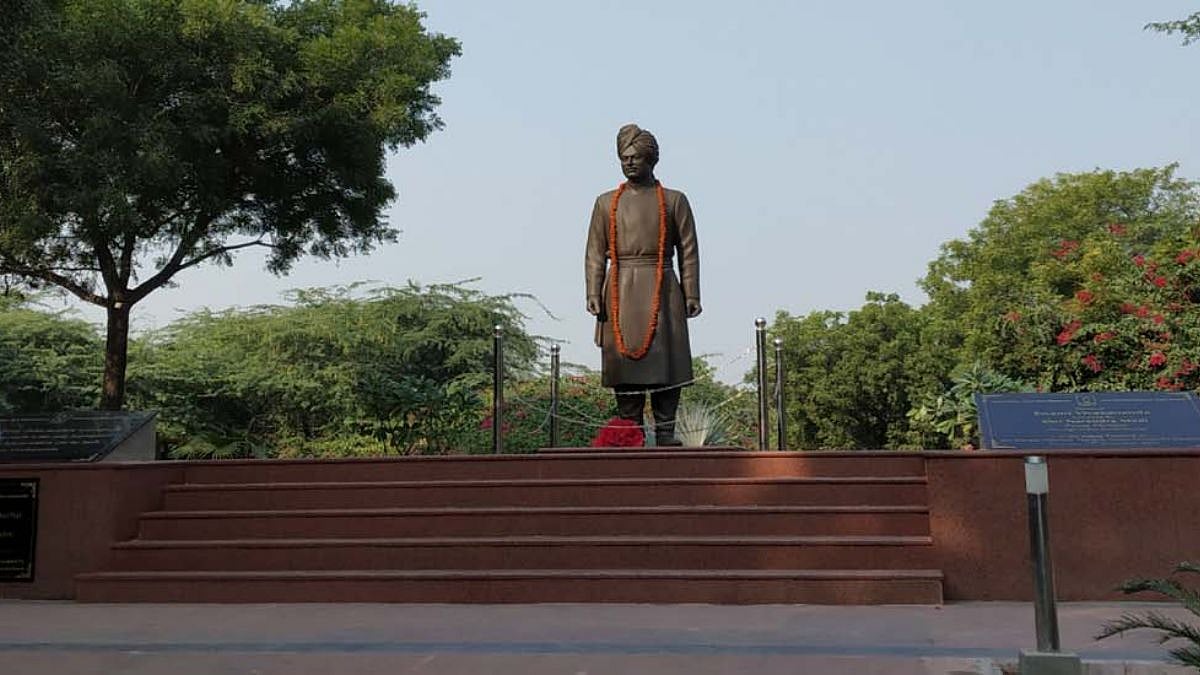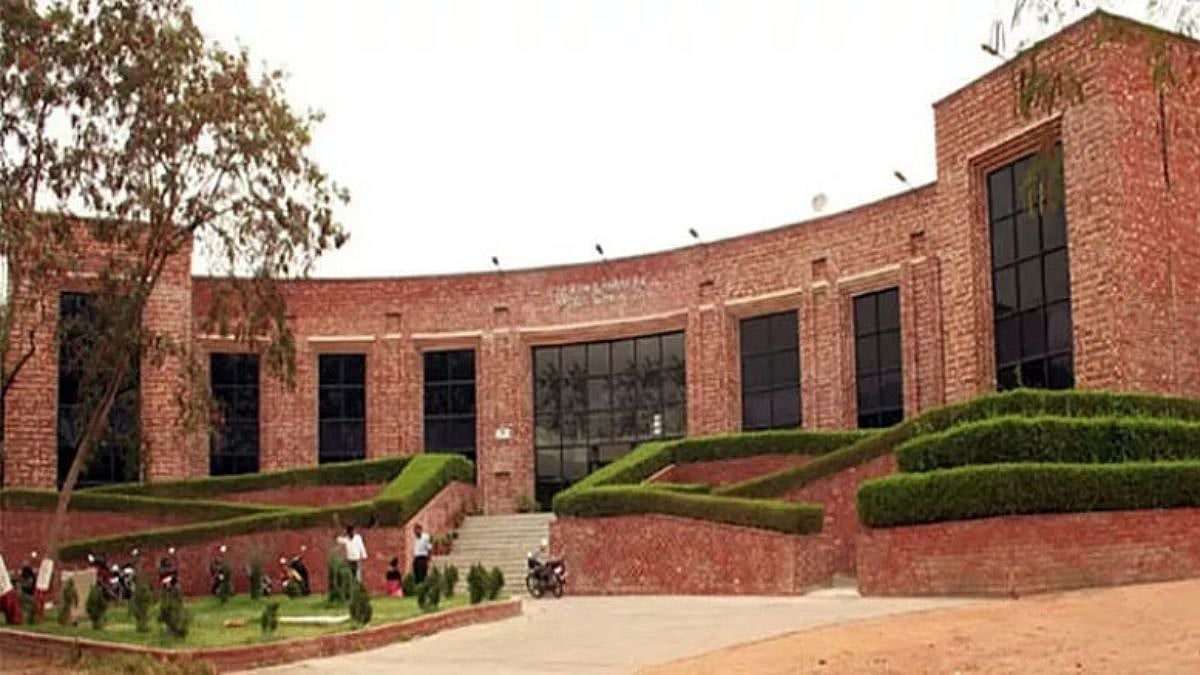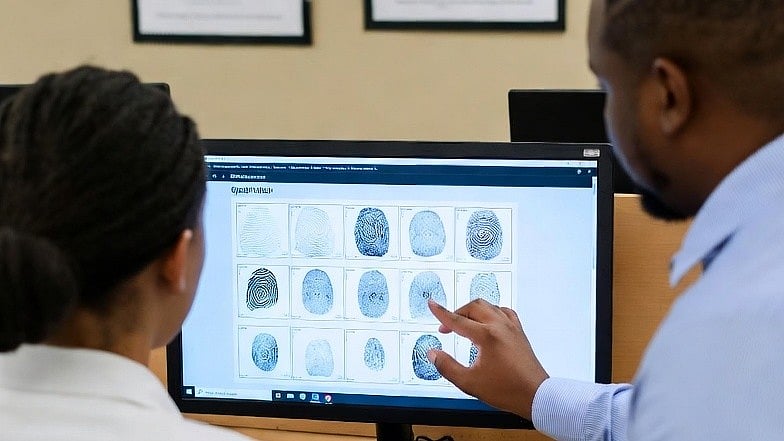The Free Press Journal caught up with Anil Harish, president of Hyderabad Sind National Collegiate (HSNC) Board, which celebrates 75 years of excellence in education this year. In a freewheeling interview, Harish discussed plans ahead.
FPJ: It’s 75 years; how would you describe the journey?
It's been an incredible journey. The Hyderabad Sind National Collegiate Board started with nothing at all. It began with Principal KM Kundnani, the principal of a college in Hyderabad, Sind. You know, there were two Hyderabads in India. The first was in Sindh, and the second was in what is now Andhra Pradesh. Therefore, we used to refer to this region as Hyderabad, Sind. So he started at the National College in Bandra. And then there was Hotchand Advani; they both expanded colleges just one after the other. Indeed, Mumbai witnessed the rapid establishment of numerous colleges.
Many other boards started at the same time with very few resources, and they set up good institutions. But this one kept increasing. They engaged a large number of individuals, particularly Sindhis, as this is a Sindhi-language minority institution. We have colleges in many different locations in and outside Mumbai, as well as in Ulhasnagar.
FPJ: But has South Mumbai always remained a favourite?
Not just in South Mumbai. We decided to go to different areas because Mumbai is becoming so expensive. We have properties at HR College and KC College, but we also have properties in Bandra, Worli, and Ulhasnagar, which is a place where so many Sindhis settled when they came at the time of partition. Our board set up a big campus there about 50 years ago. So there's a large Sindhi population, in addition to other communities. Our CHM College, Chandibhai Himathmal Mansukhani College, is doing well. And that has more than 10,000 students.
On that campus, we've got about six or seven colleges. So we are also expanding there because we believe the need for education in Ulasnagar is so great. But we wanted a bigger parcel of land. So, before COVID, we started taking Alibag seriously.
FPJ: Could you please elaborate on your Alibag plans?
We were able to get about 20 acres of land in 2023, and we are working on our plans for that. We plan to establish an Arts, Science, and Commerce College as well as explore other potential fields such as hotel management, given the area's prominence in tourism.
FPJ: Will Alibag have a residential campus?
Managing hostel facilities presents a significant challenge due to the need for 24-hour responsibility and the constant exposure to issues such as ragging. So my personal view is that even though we would need to provide hostel facilities at some point in time, especially if we want to make it a very high standard and an international standard, which we will do, we may outsource. We may have hostels on our campus, or we may acquire another piece of land, rent land, or whatever else is nearby, and let someone else run it. It is not the HSNC board's function to run hostels; it is someone else's.
FPJ: Who is your target audience on Alibag?
We want it to be for people who live in and around Alibag, but we also want it to be a very modern campus so that people from Mumbai can go there and people from other parts of India can also study here. But we also want to make it international. That is our objective—to be able to get students from other parts of the world. That's a longer-term perspective that we have, but we do want to do it.
FPJ: Could you share some information about HSNC University?
A few years ago, we established the HSNC University. The Hyderabad Sind National Collegiate Board is a board that ran all these colleges that were affiliated with Mumbai University, and many are still affiliated with Mumbai University. The government came up with the cluster university concept, whereby if there were three or more colleges in a group that had a score of 3.25 or higher on a scale of four in the NAAC (National Assessment and Accreditation Council) ratings, they could form a separate university. HR College was our leading college, followed by KC College. And the third is Bombay Teachers Training College. It's a small college with 350 students, but it's very good. So these three form a cluster university.
FPJ: What is a university's advantage?
The university is significant because it provides complete academic autonomy, something that is also available to autonomous colleges. However, at this university, you have the freedom to not only design your own syllabus, but also customize your courses. Therefore, we can implement a hybrid approach where we transition to a credit system while maintaining a variety of courses. This will enable future law students, for example, to pursue a physics course if they so choose.
FPJ: Have you added it to your college list?
At HSNC University, we have already established some colleges. These are the Niranjan Hiranandani School of Real Estate and Management and the D. M. Harish School of Law, both named after my late father. Now we'll see what schools we want to have and whether it's possible to incorporate any of the other colleges into our board, but that's for the future.
FPJ: But all in all, 75 years is a big achievement.
Yes, the board's 75th year is a progression. There aren't always big leaps. Some of these have been like the HSNC University, which has been a big leap forward. Purchasing a significant amount of land is also a significant step forward. But the rest of it is small. As Neil Armstrong said, it's one small step for a man, one giant step for mankind. But we have to keep taking these small steps.
FPJ: Are any revamps in mind?
We are trying to revamp the colleges in terms of physical infrastructure to improve them. We're spending a lot of time and effort. Our trustees, Dr Niranjan Hiranandani, Kishu Mansukhani, Maya Shahani, and Lal Chellaram, as well as our senior people, such as Padma Shah, are working hard to make them as modern as possible with computers, audiovisuals, and television screens in the rooms. I'm sure other colleges are doing the same thing. However, we are doing so to the best of our ability. Air conditioning wherever possible so that it's comfortable for students throughout.
FPJ: Will these big plans affect students’ fees?
To some extent. But we have not taken capitation fees at all; we function within the confines of the University of Mumbai's fee regulation authority and, of course, our own HSNC University. So that's what we do.
FPJ: Everyone is trying to portray an international image these days.
A lot of colleges are trying to get international students, and that's not happening too well.
FPJ: So, is there any strategy that you will adopt to make this happen?
Mumbai University, which is very good, maintains its standards higher than most other universities in the country. It's very difficult to accommodate international students because the syllabus is designed for India, whereas at HSNC University, we'll be able to do that. So we'd be able to adapt much better to have courses, to have specialised courses, for just a few students, depending on where they come from. Students may come from Africa, Europe, America, or the Far East.
FPJ: Could you elaborate on its process? The parent body is a charity organisation?
I know it's very unusual. It took a lot of discussion with the Government of Maharashtra, but they were excellent. They were very proactive, very forthcoming, and very positive. And our people also work very well; we have principal Dinesh Panjwani, who was formerly the principal of National College and before that of CHM College, and Dr. Hemlata Bagla, now the Vice Chancellor of the HSNC University. So we told the government that this concept of cluster universities had come about for the first time. You've designed this, and you're implementing it. Given that the three colleges are under the jurisdiction of an existing board, the board will serve as the parent body, as it is responsible for the ownership, operation, and management of HR College, KC College, and BTTC. Therefore, the board must act as the parent body for the three colleges. The university at that time didn’t exist. It didn’t have funds. It didn’t have a bank account.
As a result, we have this concept of the parent body, which is the HSNC Board. As a result, the funding currently comes entirely from the board. Over time, the university will receive its examination fees and other related expenses.
FPJ: Who is your university's chancellor?
The Honorable Governor of Maharashtra is the Chancellor of HSNC University, and he's been very kind. The current governor and the one before him have been very kind. We've met at Raj Bhavan when they've attended some of our meetings, and they've been very cooperative, very helpful, guiding, directing, and getting others to do so. The university has been operating under Maharashtra government notification. It is a public university. It's not a private university. There are many private universities, but this is a public university.
FPJ: What is your opinion on AI?
Of course, we have to be open to everything, and we are. There are a variety of individuals who possess knowledge about AI, and we aim to integrate this technology to the extent that we can recruit specialists in this field. However, during the COVID-19 pandemic, we discovered that, although we were able to continue with some distance learning, there is a significant difference between online learning and in-person classroom interaction. Because there are academics and co-curricular activities, you cannot do them online. So while artificial intelligence is very important and will be utilised in every way that we can, we'll have to see how best to integrate it so that it works out well. For instance, I am currently teaching at a law college in one of our institutions.
FPJ: Are there any unusual subjects or courses included in the new setup?
The School of the Performing Arts has just started, and it's got very few students right now because that is one area where there's not going to be many students coming for a formal course. But still, we feel that there's a little need for it.











